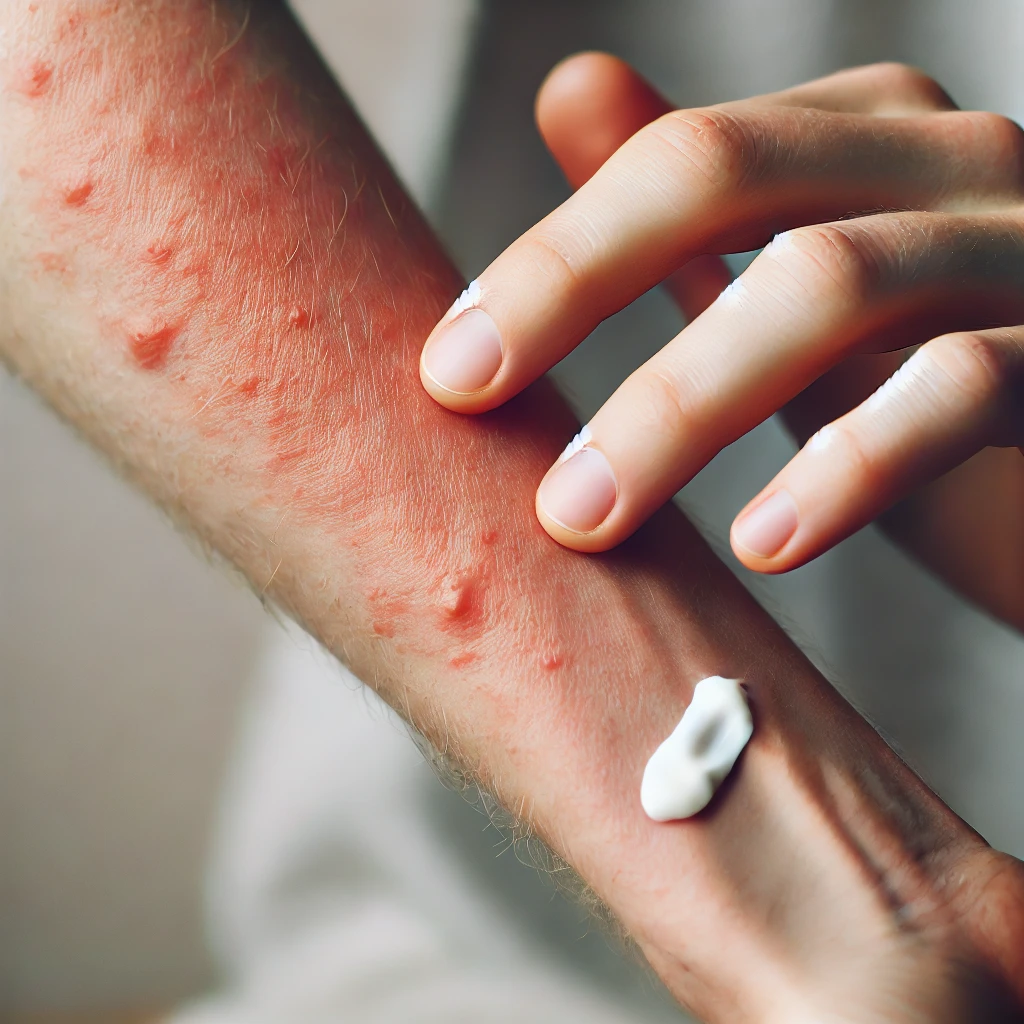
Understanding Hives and Their Impact on Skin
Hives (urticaria) are red, itchy, and inflamed welts that appear on the skin due to allergic reactions, stress, or environmental factors. While hives themselves are temporary, they can cause ongoing skincare challenges, especially for sensitive skin types.
How Hives Disrupt Skin Health
Inflammation & Redness: Hives cause swelling and irritation, leading to an uneven skin texture.
Increased Sensitivity: A weakened skin barrier makes the skin more reactive to skincare products and environmental aggressors.
Risk of Hyperpigmentation: Scratching or irritation can lead to dark spots, particularly in individuals with darker skin tones.
Compromised Skin Barrier: Repeated flare-ups can weaken the skin’s natural defenses, resulting in dryness and susceptibility to other skin conditions.
Common Triggers of Hives
Understanding the causes of hives can help in preventing flare-ups:
Allergens: Pollen, pet dander, dust mites, and certain skincare ingredients.
Harsh Skincare Products: Fragrances, preservatives, and alcohol-based formulations can trigger hives.
Temperature Changes: Heat, sweat, and cold exposure may exacerbate symptoms.
Stress & Anxiety: Emotional stress can contribute to flare-ups.
Food Allergies: Common culprits include nuts, shellfish, dairy, and food additives.
Best Skincare Routine for Hive-Prone Skin
Managing hives requires a gentle and protective skincare approach:
Use Hypoallergenic, Fragrance-Free Products – Choose skincare formulations free from irritants to minimize reactions.
Incorporate Soothing Ingredients – Aloe vera, colloidal oatmeal, chamomile, and niacinamide help calm inflammation.
Opt for a Lightweight Moisturizer – Hydrate the skin with non-comedogenic and barrier-repairing moisturizers.
Avoid Harsh Exfoliants & Actives – Retinoids, AHAs, and BHAs can worsen skin sensitivity during flare-ups.
Keep Skin Cool & Hydrated – Apply cool compresses and drink plenty of water to reduce irritation.
Patch Test New Products – Always test skincare products on a small area before full application.
When to See a Dermatologist
If hives persist for more than six weeks (chronic urticaria) or occur frequently, consult a dermatologist. They can help identify triggers and recommend antihistamines or other treatments to manage symptoms.
Final Thoughts
Hives can be frustrating, but with the right skincare approach, you can minimize irritation and maintain healthy skin. By avoiding triggers, using gentle products, and keeping skin hydrated, you can prevent flare-ups and support your skin’s resilience.
